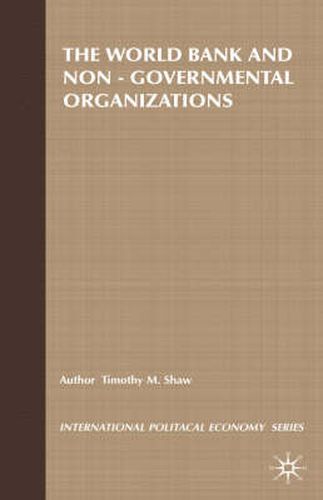Readings Newsletter
Become a Readings Member to make your shopping experience even easier.
Sign in or sign up for free!
You’re not far away from qualifying for FREE standard shipping within Australia
You’ve qualified for FREE standard shipping within Australia
The cart is loading…






This title is printed to order. This book may have been self-published. If so, we cannot guarantee the quality of the content. In the main most books will have gone through the editing process however some may not. We therefore suggest that you be aware of this before ordering this book. If in doubt check either the author or publisher’s details as we are unable to accept any returns unless they are faulty. Please contact us if you have any questions.
This book assesses the World Bank’s interaction with non-governmental organizations (NGOs) in projects, policy dialogue and elsewhere. Based on extensive project documents, public and private policy statements and interviews, the author identifies central organizational barriers to greater collaboration and accountability, and links these to the international political economy of the World Bank. The author suggests guidelines for judging organizational change in the World Bank, reviews opportunities and dangers for NGOs in relating with major aid donors, and discusses agenda and strategy.
$9.00 standard shipping within Australia
FREE standard shipping within Australia for orders over $100.00
Express & International shipping calculated at checkout
This title is printed to order. This book may have been self-published. If so, we cannot guarantee the quality of the content. In the main most books will have gone through the editing process however some may not. We therefore suggest that you be aware of this before ordering this book. If in doubt check either the author or publisher’s details as we are unable to accept any returns unless they are faulty. Please contact us if you have any questions.
This book assesses the World Bank’s interaction with non-governmental organizations (NGOs) in projects, policy dialogue and elsewhere. Based on extensive project documents, public and private policy statements and interviews, the author identifies central organizational barriers to greater collaboration and accountability, and links these to the international political economy of the World Bank. The author suggests guidelines for judging organizational change in the World Bank, reviews opportunities and dangers for NGOs in relating with major aid donors, and discusses agenda and strategy.